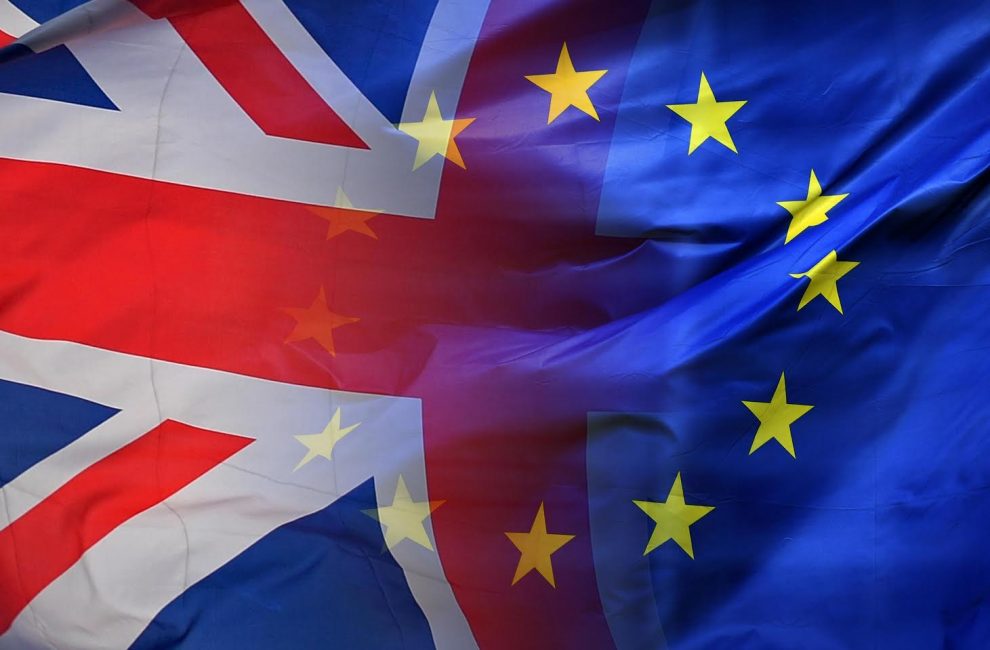THE WESTMINSTER Government faces legal action from the EU and protests from UK farmers.
On March 12, the UK Government announced it was not ready for new import controls on goods coming to the UK from the European Union.
In spite of repeatedly claiming appropriate infrastructure is in place, the hollowness of the UK Government’s claims is shown by its inability to institute border controls on EU imports by the deadline of April 1.
However, the UK’s food producers will face controls on goods they export to the EU.
The lack of import controls in the UK means consumers here will continue to pay low prices for fruit and vegetables imported from the EU. However, from April 1, UK food exporters to the EU face increased controls on their goods entering the EU.
NEW BURDEN ON FARMERS
The UK Government’s attempts to blag its way through its own massive error of judgement on its readiness for trade controls is undermined by its separate claims to the Road Haulage Association (RHA) that its infrastructure is ready and fit for purpose.
NFU President Minette Batters said: “Since 1 January the UK’s agri-food sector has been struggling with the additional costs and burdens that moving goods to the EU now entails. It is therefore frustrating that our government is not taking a similar approach to the treatment of imports coming into Great Britain from the EU.
“Our exporters face additional costs and run the risk of financial losses if products are turned back or held up at the border, yet today’s announcement means that EU producers will maintain access to the UK market relatively burden-free for a considerable amount of time. It is crucial that we achieve a level playing field with pragmatic checks on imports and exports as quickly as possible.
“Live animal imports for breeding will not require checks at Border Control Posts until March next year, which is a pragmatic solution whilst there are still no UK facilities able to host them at the border. We will continue our discussions with ports in both the UK and EU that would be able to suitably support this trade to try to ensure it can continue.”
Adding grist to the RHA’s mill, Ms Batters observed: “There remains a lot of outstanding issues that we want the UK and the EU to resolve as part of ongoing relationship discussions. More needs to be done to address the burdens on exporters to the EU, including the digitalisation of outdated paperwork requirements for health and organic certificates, and streamlining physical and administrative checks at the border.”
Ian Wright CBE, Food and Drink Federation Chief Executive, said: “The FDF welcomes this sensible and pragmatic step to ensure that food and drink continues to flow and allows manufacturers access to the inputs and ingredients they need in order to continue producing the full range of products for UK shoppers and consumers.
“Government must now use this time to do everything it can to support UK food and drink exporters who continue to face huge difficulties moving goods into the EU. They must work constructively with the EU to address barriers to trade by improving the implementation of the trade agreement and streamlining processes.”
LEGAL ACTION THREATENED
A consequence of the UK’s decision is a formal threat of action by the EU for breaching international law.
When the Westminster Government signed up for the trade deal, it not only knew the deadlines contained within it, but it also knew that its infrastructure was nowhere near ready.
The proposed delay on import controls particularly affects the complex status of Northern Ireland.
Despite repeated promises beforehand and loud claims to the contrary after signing the trade agreement, the UK Government created a border in the Irish Sea between the UK and Northern Ireland.
Although Northern Ireland remains politically part of the UK, economically it remains within the EU Single Market. With the UK Government’s whole-hearted agreement, goods moving between the UK and Northern Ireland are treated as though they are being exported to the EU.
The UK Government’s failure to impose controls on imports to Northern Ireland from the UK breaches the terms of the binding treaty it entered with the EU in December last year.
UK SPURNED OFFER OF MORE TIME
The UK Government’s announcement it intends to disregard its own international law obligations resulted in a formal letter before legal action from the EU to the UK.
If the UK doesn’t back down, negotiate a compromise or respond, it will be subject to summary judgement under the arbitration agreement it signed (presumably in good faith) with the EU.
An EU official said the reality of checks and controls on some goods moving from Great Britain to Northern Ireland was “crystal clear” to the UK when it negotiated the Protocol in September and October 2019.
The UK government and the then chief negotiator [David Frost], who is now Minister of State, made a choice in Sept 2019,” said the official.
“Then there was a renegotiation of the WA based on the premise that there would be checks on some goods moving east-west, from GB-NI.
“That was really crystal clear to all sides and it was the working assumption of the talks at the time,” said the official.
“The UK had chosen not to extend the 11 month transition period, which was there “specifically to enable everybody to understand the consequences of the new arrangements and the new reality.
The UK Government claimed that the grace periods, which it agreed with the EU in December, were “sufficient” to allow all operators to be ready to apply the Protocol by April 1.
“The EU looked at these requests, understood and discussed the conditions that would accompany those requests, showed understanding and flexibility, and accepted that in practice more time was needed, and so these grace periods could in fact apply,” said the EU official
The official said that in return for the grace periods the UK would provide a road map, or “a clear understanding of when and how we would get a pathway towards a full implementation of the Protocol.”
The official added: “This is something we have not received. In other words, we have not received the UK roadmap explaining what it would do in practice in order for the Protocol to be applied in full.”
The Government claimed: ‘This will provide businesses with further time to prepare for changes at the border and minimise disruption as the economy gradually reopens. The government recognises the scale and significance of the challenges businesses have been facing in adjusting to the new requirements’.
Tub-thumping claims about Britain’s status as ‘a sovereign nation’ ignore the fact that the person making them, Lord Frost, is the person responsible for the UK’s negotiations. If he negotiated in good faith with his EU counterparts, it is outrageous to even hint the contrary, he must have known the consequences of his own actions.
If he wasn’t aware, it doesn’t inspire confidence in his judgement.
The reality of the UK Government’s slapdash and ill-thought-out approach to trade with the EU– as seen elsewhere in the example of the UK’s fishing industry – has once more disadvantaged the UK’s own producers.


















Add Comment